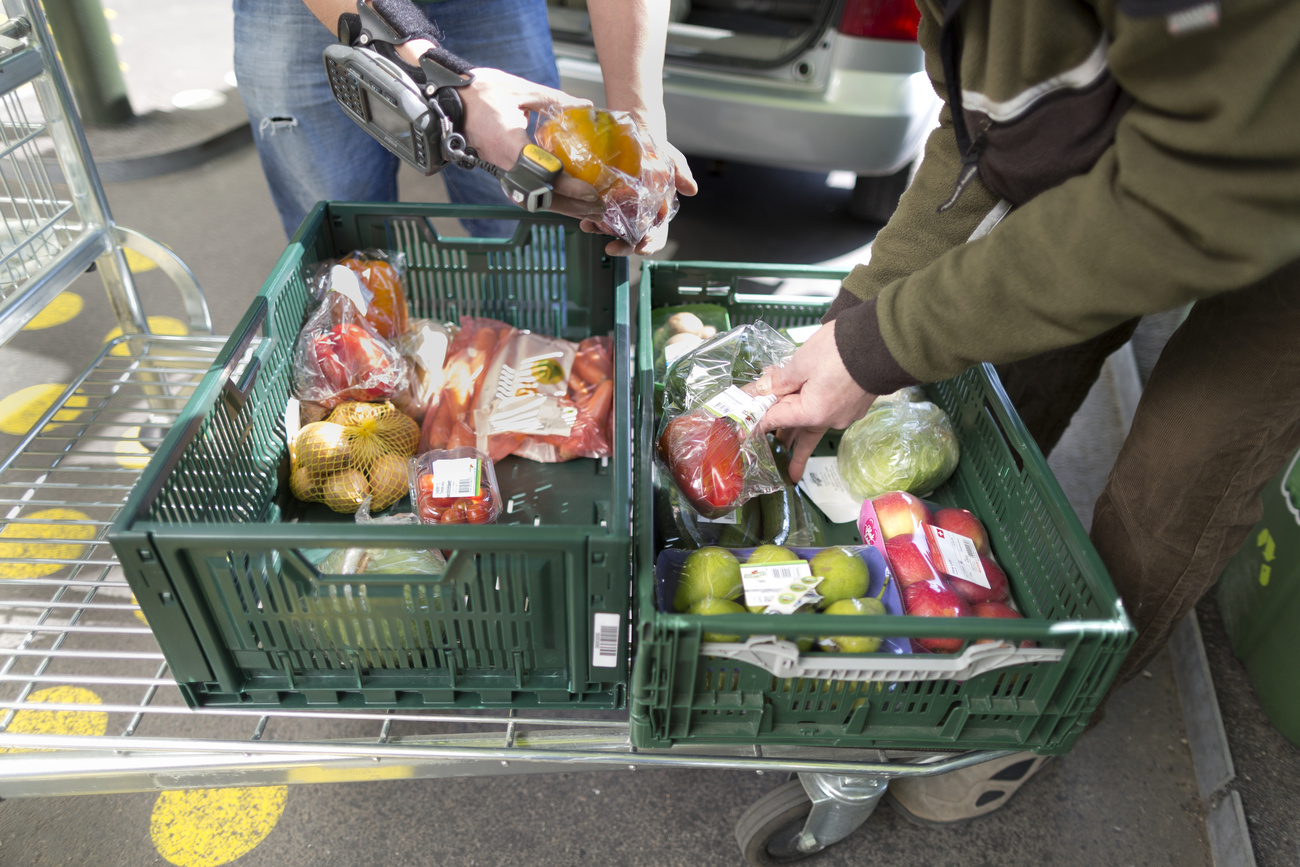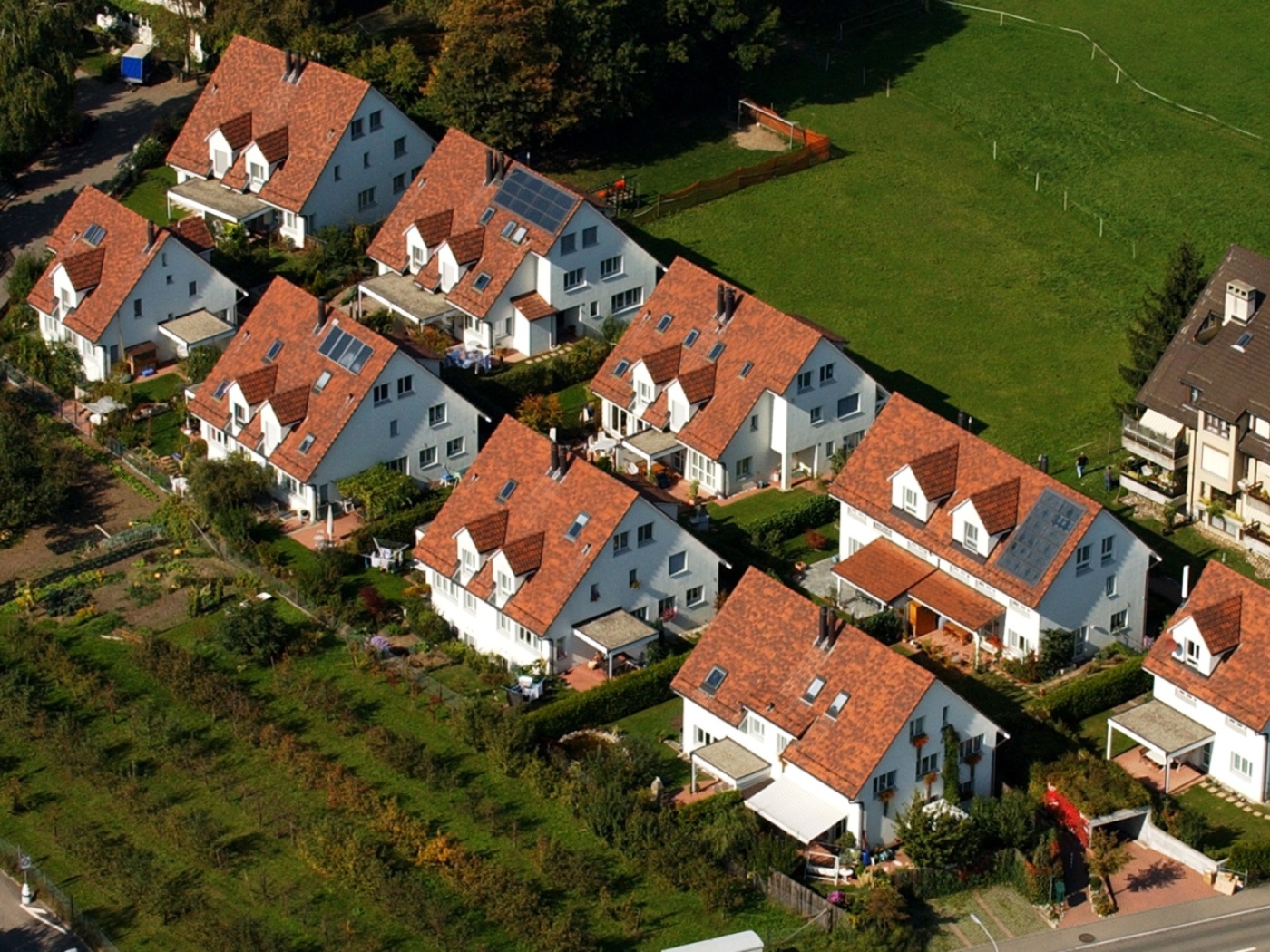
Swiss inflation rate drops to zero in April

Swiss inflation slowed to the weakest in more than four years (0% in April) as the strong franc drives down the costs of imported goods.
+Get the most important news from Switzerland in your inbox
Annual consumer-price growth was zero in April, Switzerland’s statistics office said on Monday. That’s down from 0.3% in March and weaker than predicted by all but one analyst in a Bloomberg survey of economists.
Inflation was pushed down by hotels and holiday accommodation, while clothing and vegetables were a driver, according to the government agency.
+ How the strong franc spared Switzterland excessive inflation
The core gauge – which excludes fresh and seasonal products as well as energy – also slowed more than anticipated, dropping to 0.6%.
The slowdown was due to imported goods – particularly energy and fuels – dragging the gauge down, according to Arthur Jurus, an economist at Oddo BHF. The only major source of structural consumer-price growth was residential rents, he added, without which the reading would have been negative.
+ Switzerland navigates own course through inflation maze
Weak inflation track record
April saw the franc appreciate against all major peers as United States President Donald Trump’s on-again, off-again tariffs and fiscal policies pushed investors to havens like the Swiss currency. The country has a track record of weak inflation and the Swiss National Bank (SNB) expects it to average just 0.4% this year.
+ Trump tariff shock: how Switzerland positions itself
SNB president Martin Schlegel has warned that it could dip below zero in some months.
Less economic activity could also weigh on prices after Swiss manufacturing on Friday showed the biggest drop in four years due to the twin shock of tariffs and the strong franc. The government previously dropped its growth forecast for this year.
With low energy prices and the franc weighing on inflation, it becomes more likely that next month’s reading will be negative, said Maxime Botteron, an economist at UBS.
“Against this backdrop, we expect the SNB to lower its policy rate to 0% at its June meeting,” he added.
Borrowing cost decision
Weaker consumer prices have already forced the central bank to bring down its benchmark by 150 basis points in five consecutive steps to just 0.25%, with some economists now saying that a return to sub-zero interest rates is possible.
The next rate decision – on June 19 – may be too soon for such a move as the SNB will only have one additional inflation reading by then and Trump’s current reprieve in the trade war won’t be over before early July.

More
Swiss house prices rise 4% in a year
Still, markets are fully pricing in a 25 basis-point cut at that meeting, bringing the policy rate to 0%. Price growth is also below the central bank’s most recent forecast, further strengthening the case for lowering borrowing costs.
Schlegel could face questions on that when he speaks at a Zurich conference on Tuesday.
At 2.2% in April, inflation in the euro area surrounding the country is rising significantly quicker than in Switzerland. Based on the European Union’s harmonised measure, Swiss prices saw a rise of 0.3% in the period.
Based on the weak reading, Bank J Safra Sarasin’s chief economist Karsten Junius even expects a discussion about a big half-point cut ahead of officials’ meeting next month. Still, he sees such as unlikely as the origin of the franc’s appreciation is “clearly political” and as such could falter very quickly again.
“The SNB shouldn’t panic about 0% inflation,” he said. “We have been there before and we will get out of there as well.”
©2025 Bloomberg L.P.

In compliance with the JTI standards
More: SWI swissinfo.ch certified by the Journalism Trust Initiative




























You can find an overview of ongoing debates with our journalists here . Please join us!
If you want to start a conversation about a topic raised in this article or want to report factual errors, email us at english@swissinfo.ch.